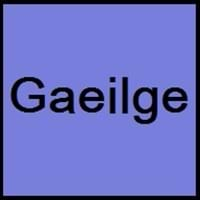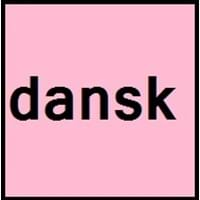Irish vs Danish
Countries
European Union, Ireland
Denmark, European Union, Faroe Islands, Greenland, Nordic Council
National Language
Ireland
Denmark, Faroe Islands, Germany, Greenland
Second Language
Ireland
Not spoken in any of the countries
Speaking Continents
Europe
Europe, North America, South America
Minority Language
United Kingdom
Argentina, Brazil, Canada, Germany, Greenland, Norway, Sweden, United States of America
Regulated By
Foras na Gaeilge
Dansk Sprognævn (Danish Language Committee)
Interesting Facts
- In Irish language, there are no exact words for "yes" or "no".
- There are different set of numbers for counting humans and another set for counting non-humans in Irish Language.
- Danish, Norwegian and Swedish are mutually intelligible, that means if u learn Danish is almost like learning three languages in one.
- There are 9 vowels in Danish language, which can be pronounced in 16 different ways.
Similar To
Not Available
Norwegian and Swedish
Derived From
Not Available
Old Norse Language
Alphabets in
Irish-Alphabets.jpg#200
Danish-Alphabets.jpg#200
Writing Direction
Left-To-Right, Horizontal
Left-To-Right, Horizontal
Thank You
Go raibh maith agat
Mange tak
How Are You?
Conas atá tú ?
Hvordan har du det?
Good Night
Oíche mhaith
God nat
Good Evening
Tráthnóna maith duit
God aften
Good Afternoon
Tráthnóna maith duit
God eftermiddag
Good Morning
Dia dhuit ar maidin
God morgen
Please
le do thoil
Please
Sorry
Tá brón orm
Undskyld!
I Love You
Is breá liom thú
Jeg elsker dig
Excuse Me
Gabh mo leithscéal
Undskyld mig
Dialect 1
Connacht Irish
Scanian
Where They Speak
Connacht
Sweden
How Many People Speak
Not Available
Dialect 2
Munster Irish
Jutlandic
Where They Speak
Munster
Denmark
Dialect 3
Ulster Irish
Bornholmsk
Where They Speak
Ulster
Island of Bornholm
Speaking Population
Not Available
Not Available
Second Language Speakers
Not Available
Native Name
Gaeilge (na hÉireann) / An Ghaeilge
dansk
Alternative Names
Erse, Gaeilge, Gaelic Irish
Dansk, Rigsdansk
French Name
irlandais moyen
danois
German Name
Mittelirisch
Dänisch
Pronunciation
[ˈɡeːlʲɟə]
[d̥ænˀsɡ̊]
Ethnicity
Irish people
Danish people or Danes
Language Family
Indo-European Family
Indo-European Family
Subgroup
Celtic
Not Available
Branch
Goidelic
Not Available
Early Forms
Primitive Irish, Old Irish, Middle Irish, Classical Irish, Irish
Old Danish, Early Modern Danish
Standard Forms
An Caighdeán Oifigiúil
Rigsdansk
Signed Forms
Irish Sign Language
Signed Danish
Scope
Individual
Individual
ISO 639 6
Not Available
Not Available
Glottocode
iris1253
dani1284
Linguasphere
50-AAA
5 2-AAA-bf & -ca to -cj
Language Type
Living
Living
Language Linguistic Typology
Verb-Subject-Object
Subject-Verb-Object
Language Morphological Typology
Fusional
Fusional
Irish and Danish Language History
Comparison of Irish vs Danish language history gives us differences between origin of Irish and Danish language. History of Irish language states that this language originated in c. 750 whereas history of Danish language states that this language originated in c. 1100 AD. Family of the language also forms a part of history of that language. More on language families of these languages can be found out on Irish and Danish Language History.
Irish and Danish Greetings
People around the world use different languages to interact with each other. Even if we cannot communicate fluently in any language, it will always be beneficial to know about some of the common greetings or phrases from that language. This is where Irish and Danish greetings helps you to understand basic phrases in Irish and Danish language. Irish word for "Hello" is Dia dhuit or Danish word for "Thank You" is Mange tak. Find more of such common Irish Greetings and Danish Greetings. These greetings will help you to be more confident when conversing with natives that speak these languages.
Irish vs Danish Difficulty
The Irish vs Danish difficulty level basically depends on the number of Irish Alphabets and Danish Alphabets. Also the number of vowels and consonants in the language plays an important role in deciding the difficulty level of that language. The important points to be considered when we compare Irish and Danish are the origin, speaking countries, language family, different greetings, speaking population of these languages. Want to know in Irish and Danish, which language is harder to learn? Time required to learn Irish is 36 weeks while to learn Danish time required is 24 weeks.





